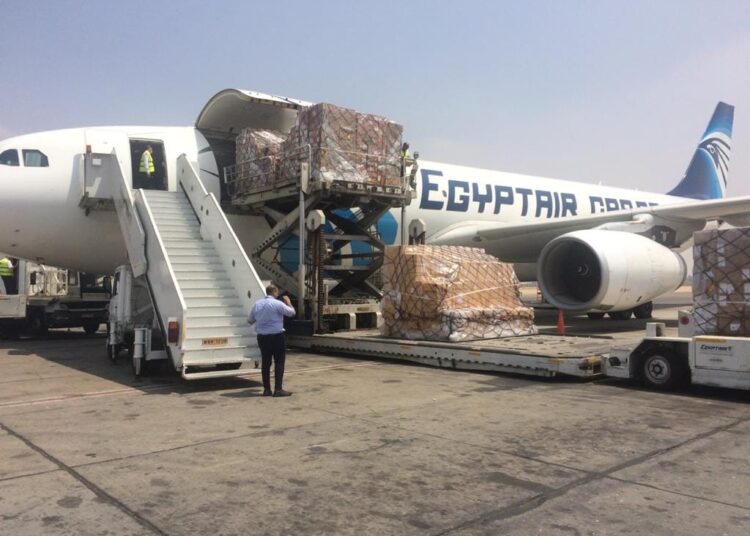
By Mohamed Attia
The state announced its strategy to turn Egypt into a logistics hub for goods and increase exports to $100 billion annually, an increase of about two and a half times the volume of current exports, through 3 elements, the first is the development of ports and raising their efficiency, and the second is the inauguration of the electric train to connect ports with airports.

The third and most important is the development and increase of air cargo capacity, which was started by EgyptAir Cargo in a limited percentage compared to the current air cargo fleet.
EgyptAir Cargo is currently witnessing a breakthrough through the development of its network and the exploitation of Cairo International Airport as a hub airport to bring goods with the company’s fleet of aircraft from the Far East to Cairo and re-ship them to America, Europe and Africa.
In fact, air freight activity is one of the most important elements to transform Egypt into a logistics hub for goods.
The field of air freight is a quick investment and is considered the highest among air transport activities in general.
Therefore, we believe that the development of this activity has become an urgent matter in light of the state’s tendency to increase exports to the world in general and the African continent in particular, and to create logistical hubs.
On the other hand, the coronavirus pandemic revealed the importance of air freight.
At a time when the global aviation activity at the level of passenger transport incurred huge losses, which led to the announcement of many airlines bankruptcy and their exit from the market.
Air freight activity succeeded in achieving more profits, and what confirms this is what EgyptAir Cargo achieved during the pandemic.
The figures do not lie, as the revenues of EgyptAir Cargo’s planes in the 2019-20 budget amounted to about LE1.5 billion.
After the emergence of the coronavirus pandemic, its revenue in the 2020-2021 budget increased to LE2 billion.
The 2021-2022 budget also revealed a rise in revenues to LE3.3 billion, which explains the mystery of the increases, rather the surges in freight revenues, not only at the level of EgyptAir, but at the level of companies in the world.
All studies and reports issued by international aviation organisations, especially the International Civil Aviation organisation (ICAO), expected the rise in air freight indicators worldwide over the next ten years with significant upward rates, which is confirmed by the financial reports of air cargo companies, including EgyptAir.
Studies and reports also indicated that the air cargo activity witnessed an unprecedented growth during the coronavirus pandemic, which revealed the importance and increasing growth of this activity despite the global crises that civil aviation activities suffer from.
Therefore, I think that it is time to increase the air freight fleet to achieve several goals, the most important of which is achieving the state’s strategy in transforming Egypt into a logistical hub for goods and also increasing revenues and profits, especially since investment in the field of air freight is safe and returns quickly.
In addition to increasing our ability to compete and expand within the African continent, we refer to a comparison between EgyptAir and the Ethiopian Airlines, which currently owns 13 air cargo planes, including 10 Boeing 777 aircraft of 100 tonnes, in addition to 3 Boeing 737s of one payload.
According to a simple calculation, we find that the total capacity of the fleet of air cargo planes for the Ethiopian company is 10,75 tonnes, in addition to exploiting the available space of passenger planes






Discussion about this post